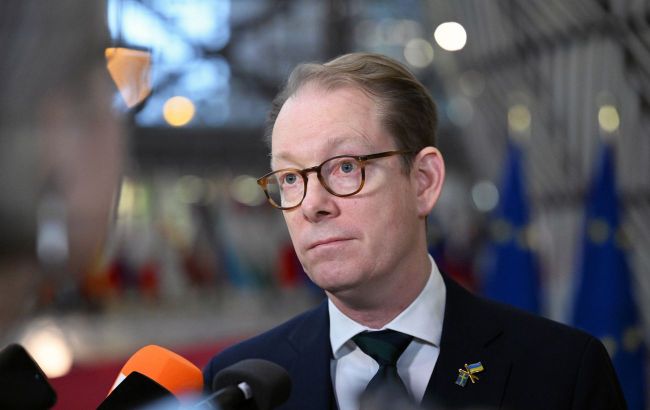Russia is ready to create 'environmental havoc' - Swedish Minister of Foreign Affairs
 Photo: Swedish Ministerof Foreign Affairs Tobias Billström (Getty Images)
Photo: Swedish Ministerof Foreign Affairs Tobias Billström (Getty Images)
Swedish Minister of Foreign Affairs Tobias Billström stated that Russia could create “environmental havoc” by using unseaworthy vessels through the Baltic Sea, reports The Guardian.
Billström warned of an environmental disaster and called for new rules and enforcement mechanisms to prevent “environmental havoc”.
Environmental disaster is possible in the Baltic Sea
According to the Minister, nearly half of all Russian oil is transported through the Baltic Sea and Danish waters. Specifically, Russia uses international waters to avoid inspections.
“We will all be affected if there were a major problem arising from a collision or oil leakage from one of these ships, which also in many cases are not seaworthy, or very close to not being seaworthy,” Billström said.
He also stated that every state, that was a member of the International Maritime Organization, had a responsibility to uphold IMO rules and regulations and had the right to demand that the captain of a ship deemed unseaworthy take action before departing from port.
However, some Scandinavian countries are concerned about Russia's reaction if they intervene, as it could reinforce Moscow's belief that the Baltic Sea is turning into a "NATO lake," cutting Russia's access to the sea from ports like St. Petersburg and Kaliningrad, the minister added.
International law allows ships to be intercepted if they are improperly flagged, but some legal norms are unclear. Billström agreed that NATO members can hardly risk being seen in the Red Sea, violating freedom of navigation.
The accession of Sweden and Finland to NATO, according to Billström, changed the strategic situation in the Baltic Sea, as Russia remained the only country with a Baltic coastline that was not a member of the military alliance.
Sweden's accession to NATO
On February 26, the Hungarian parliament ratified Sweden's application to join NATO. Now, the decision of the parliament must be approved by the acting president of Hungary, Laszlo Kövér, within five days.
It should be added that Hungary was the last country whose ratification was needed for Sweden to officially join the Alliance.

